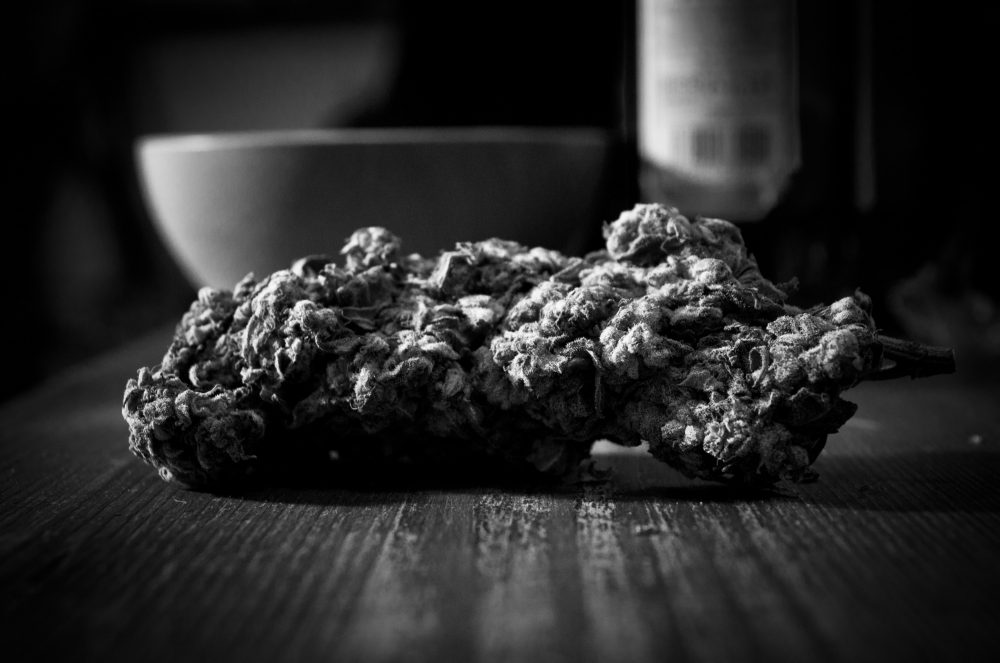Advertisement
It's Black And White: The Social Justice Case For Legalizing Marijuana

COMMENTARY
When thinking about how to cast your ballot on Question 4, to legalize, tax and regulate marijuana, consider the social justice implications of your vote.
Don’t buy the argument that "no one gets arrested for possession of marijuana” anymore. That’s simply not true. More than 600 people are still arrested for marijuana possession annually in Massachusetts. It matters a lot to them and their families that using pot is still not legal. Arrests generate criminal records, which create barriers to housing, employment, education, adoption and more.
Black people are more than three times more likely to be arrested for marijuana possession than whites, even though rates of marijuana use are the same across race.
Moreover, criminalizing marijuana disproportionately hurts poor people and folks of color. Black people are more than three times more likely to be arrested for marijuana possession than whites, even though rates of marijuana use are the same across race. Recent data from the Boston Police Department show that hundreds of people in Boston’s neighborhoods of color are disproportionately stopped by the police for marijuana, while their white suburban neighbors who consume at the same rate do so without concern. Indeed, since voters approved decriminalization of an ounce or less in 2008, racial disparities in marijuana arrests have increased in Massachusetts. Legalization will reduce those disparities.
Unnecessary drug raids are another part of the problem. Last month, after spotting one marijuana plant from a helicopter, state police stormed the property of an 81-year-old grandmother and medical marijuana patient in Amherst in order to tear up the single plant. Last July, Massachusetts National Guard personnel and state police stormed the property of Martha’s Vineyard resident Paul Jackson, an 81-year-old former cancer patient who grows the plant for medicinal tea. They confiscated four plants. Question 4 would put an end to such outrageous waste of criminal justice resources.
The Question 4 ballot was written by people who studied what worked in other states, including Colorado, Washington, Alaska and Oregon, and improved on their systems. The Massachusetts Question 4 initiative thus provides for a regulatory commission to develop packaging and controls to ensure public health. Marketing toward youth will be forbidden. Local cities and towns that elect to stay dry are welcome to do so, as with alcohol.
Criminalizing marijuana has failed, because criminal law is too blunt a cudgel for an issue that calls for a public health education approach.
The marijuana business already exists, it’s just in the shadows where exploitation takes place. It is time to bring the underground economy into the light, where we can regulate it and address it as a public health matter, with education and controls. Remember the "Let's make smoking history" education campaign? That did far more than prohibition to make once-ubiquitous cigarettes uncool.
We can’t wait for the Legislature to fix the law. They have had multiple opportunities to do so and failed to act. Despite widespread calls for public health approaches to substance abuse, most politicians still fear being labeled “soft on crime” at reelection time.
Criminalizing marijuana has failed, because criminal law is too blunt a cudgel for an issue that calls for a public health education approach. A yes vote on Question 4 is a vote for public health and social justice.
